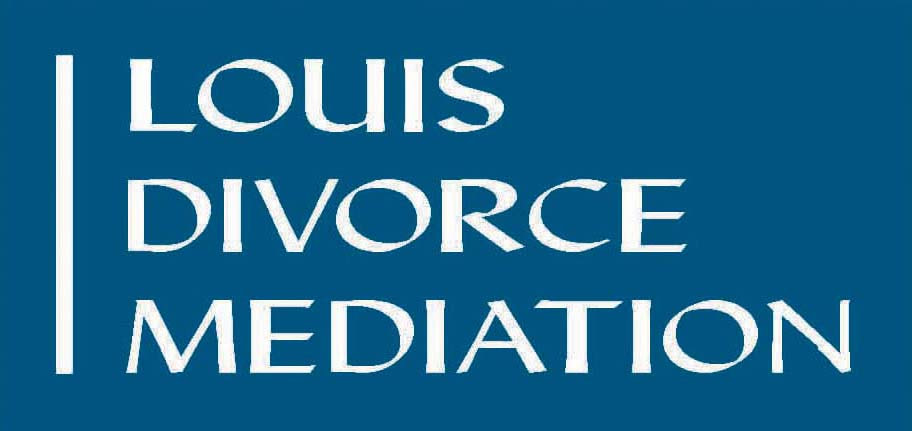Louis Divorce Mediation ~ Online and In-Person Mediation in Chicago
|
As I think about the mediation process—involving both my clients and me—the act of asking questions looms large.
For the mediator, asking questions is the gateway to understanding what the goals of each spouse are as they discuss the details of how to end their marriage. I’ve also found that questions that are asked by one spouse of another can transform a history of ineffective communication into a constructive opportunity to understand. On the other hand, a question that is asked in a self-serving way or which otherwise may cause someone to feel vulnerable or made to look bad can derail the conversation. Several years ago, I participated in continuing education that addressed how we can use questions to better understand each other. The presenter, Sharon Strand Ellison, author of Taking the War Out of Our Words, focused on the dos and don’ts of asking questions. My biggest takeaway on the “do” side of asking questions is to come from a place of curiosity. When we demonstrate curiosity, we are signaling to the other person in a conversation that we are interested in what the other has to say. And so for the one hearing that question, s/he can then think, “I am being invited to share.” That can be very freeing for someone who may be used to hearing questions that sound more like an interrogation—where controlling behavior has been a symptom of the marriage. A good question, coming from genuine interest and curiosity, can often unlock a door behind which may lie many answers…[those answers] may build a foundation for learning where the other person is coming from…thereby furthering a conversation about options for meeting both spouses’ needs as they plan for separate lives. A good question, coming from genuine interest and curiosity, can often unlock a door behind which may lie many answers:
Any of the above may build a foundation for learning where the other person is coming from, in terms of needs and interests, thereby furthering a conversation about options for meeting both spouses’ needs as they plan for separate lives. As a mediator, using my curiosity to generate good questions allows my clients to express themselves and be heard. And together, we can use that dialogue to explore the future and create a path of promise and hope.
0 Comments
In the divorce mediation process, emotional readiness and financial information gathering may impact how fast or slow the process will proceed. In my work with clients I find that a typical financial issue that affects the pace of mediation is the question of the future of the couples’ house. Fortunately, there are steps to take and research that can be done by you to prepare for these discussions in advance.
For many divorce mediation clients, the marital residence becomes the center of the conversation, as it is often the asset with the highest value and most emotional attachment. The house is also known as the “marital residence.” For many clients, the marital residence becomes the center of the conversation, as it is often the asset with the highest value and the most emotional attachment. This sense of attachment can be the case for one or the other spouse, for the children or for the whole family. Two of the biggest concerns regarding the marital residence are these:
In many cases, addressing these concerns will require further research that can take some time to complete. You have a number of options for establishing a value for your house, ranging from a mutual agreement on its value (recent appraisal in connection with a home equity loan, online sources like Zillow.com, Redfin, etc.) to hiring one or more professional appraisers to provide an expert opinion on value. Some couples may wait to decide in mediation how to implement their valuation strategy; others have this done before beginning mediation conversations. Unfortunately, in some cases, an outstanding mortgage and home equity loans may reduce equity to a minimal or even negative amount. Most clients who want to arrange for one spouse to be the sole owner and occupier of the marital residence will want to reconfigure the mortgage so that person is the sole borrower. In current economic conditions, banks are reluctant to allow a name to be removed from the mortgage. However, it is worth a try. Alternatively, refinancing the mortgage is an option. However, a bank’s willingness to lend will depend on the net equity of the house and the income of the borrower. Some clients arrange for refinancing by having a co-signer to bolster income. In mediation, we will discuss all the options related to the marital residence, and you’ll get to make the final decision about what works best for your situation and future. It may take some time to explore possible refinancing options, but that research will contribute to a constructive discussion and a well-informed decision that will be worth the effort. |
Categories |
David Louis, MPA, CDFA® • Louis Mediation Services - Chicago
|
Chicago Office: 1700 W Irving Park Rd., Suite 105, Chicago, IL 60613
Northbrook Office: 555 Skokie Blvd., Suite 500, Northbrook, IL 60062 |
Copyright © 2024



 RSS Feed
RSS Feed